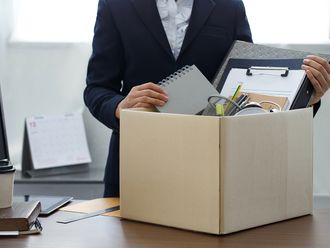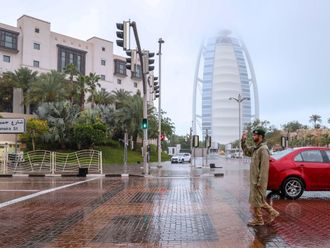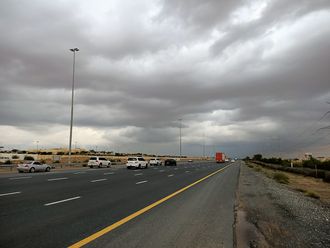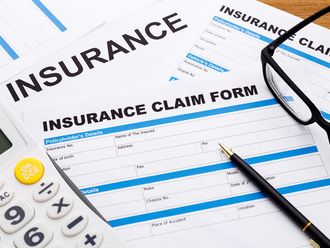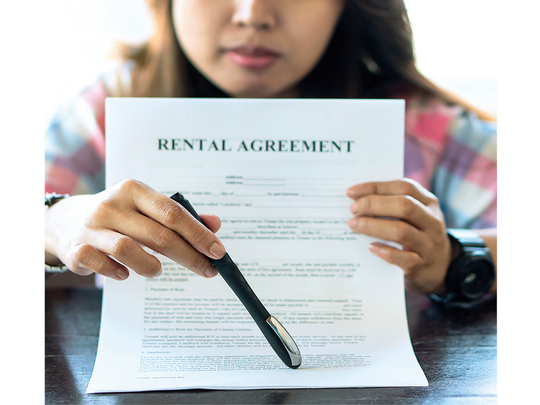
Dubai: If you are a tenant at a property in the UAE, it is important to know what your rights are in case you face a dispute with your landlord related to the property’s maintenance, payment and the conclusion of a rental contract.
A Gulf News reader wrote in, asking about his rights as a tenant as he was struggling to get his security deposit back from the landlord.
Read more
- Tenants’ rights in the UAE: My landlord is not giving my security deposit back. What do I do next?
- COVID-19: Lost your job? These are the options with your rental contract in the UAE
- COVID-19: How you can baby-proof your home to keep your child safe
- Home insurance in the UAE: Protect your home against fires, floods and accidents
- Coronavirus: Want to disinfect your UAE home? Read this
The reader said: “I would like to highlight the issues we face when renting out homes regarding getting our deposit back from the landlord. They make up a list of works, which costs over and above the deposit, stating that such damage was done by us, which is categorically incorrect. The agents do not help us either, in fact they just want to take their money. Where is the aftercare service?”
Gulf News spoke with Dr Raisa Abdulrahman, advocate and arbitrator at The Legal Group, to find out what a tenant’s rights are, as per the UAE law and what you can do to ensure you are not short-changed in a rental agreement.
“Commonly, tenants end up in warfare with the owner of the property, attempting to determine who is accountable for repairs and maintenance costs. In most jurisdictions, proprietors are required to guarantee that their leased properties are in a livable condition. The property must meet the least security and safety measures. In the event of damages affecting the livable condition of the rental unit, the landlord is liable for fixing such damages at no cost to the tenant,” Dr Raisa said.
So, by law, the owner of the property is responsible for the maintenance of the property and the repair of any defect or damage, unless otherwise stated in the contract. This is based on article 16 of Law No. (26) of 2007 Regulating the Relationship between Landlords and Tenants in the Emirate of Dubai.

Commonly, tenants end up in warfare with the owner of the property, attempting to determine who is accountable for repairs and maintenance costs. In most jurisdictions, proprietors are required to guarantee that their leased properties are in a livable condition. The property must meet the least security and safety measures. In the event of damages affecting the livable condition of the rental unit, the landlord is liable for fixing such damages at no cost to the tenant.
The law
Article (16)
Unless otherwise agreed by the parties, the Landlord will, during the term of the Lease Contract, be responsible for the Real Property’ maintenance works and for repairing any defect or damage that may affect the Tenant’s intended use of the Real Property.
“Thus, the landlord has the obligation to repair any defect that affects the tenant’s use and enjoyment of the leased property. If the landlord fails to do so, the tenant shall have the right to cancel the lease or to apply for an order that he be allowed to effect the repair and recover the fair and reasonable cost thereof from the landlord,” Dr Raisa said.
Urgent repair work
If the problem you are facing is urgent, as a tenant you are entitled to get the repair work fixed and recover the expenses from the landlord, or get the amount deducted from the rent due, according to UAE law
Article (17)
The Landlord may not make to the Real Property or any of its amenities or annexes any changes that would preclude the Tenant from full use of the Real Property as intended. The Landlord will be responsible for such changes whether made by him or any other person authorised by the Landlord. Further, the Landlord will be responsible for any defect, damage, deficiency, and wear and tear occurring to the Real Property for reasons not attributable to the fault of the Tenant.
Cosmetic defects may not included
However, owners are not always required to repair certain damages, such as cosmetic defects that do not affect the integrity of the property. Meanwhile, they remain responsible for the maintenance works and repairs of any defects in respect of the leased property, which may affect the tenant’s intended use thereof, unless otherwise agreed between the parties.
Read your agreement
Dr Raisa also advised tenants to carefully read the agreement to ensure no clause comes as a surprise at a later date to the tenant.
“For example, the tenancy contract may state that repairs below Dh500 will be paid for by the tenant and above that by the landlord,” she said.
So, ensure that you are aware of whose responsibility it is to repair or maintain any defects or damages to the property you are leasing.
“If the landlord is claiming the security deposit he must support his claim with reasonable evidence such as actual payments made and such payments should be in accordance with reasonable market value,” Dr Raisa added.
Who will fix faulty construction?
If your property management refuses to fix a faulty construction, as a tenant you are within your rights to approach the Rental Disputes Settlement Centre (RDSC) of your emirate.
“RDSC is the competent authority to receive applications related to the tenancy and adjudicate the dispute. The committee working at the centre looks into all cases of disputes, except those involving financial disputes like finance lease contracts, in addition to rental disputes located in the free zones,” Dr Raisa said.
“Law No. (6) of 2019 on ownership of jointly owned properties in the Emirate of Dubai is also relevant in this regard, as the developer is responsible for one year from the date of the handover to repair or replace defective fixtures in the jointly owned property. This shall continue for one year from the date of handing over the unit to the owner. These fixtures include mechanical and electrical works, sanitary fittings, sewerage and the like thereof. Further, the developer has a liability of 10 years for structural defects,” she added.
How to lodge a rental dispute?
Rental dispute settlement centres adjudicate cases between tenants and landlords in each emirate, except free zones.
Free zones have special judicial committees or courts competent to settle rent disputes emerging inside their boundaries.
If you wish to file a dispute with the RDSC, you must provide the following documents:
- Passport and Emirates ID or commercial licence
- Passport and Emirates ID of the landlord/ or commercial licence of the company
- Ejari certificate
- Copy of the lease agreement
- Recent Dewa bills
- Title Deed and Passport copy of landlord
- Any other documentation that can help support your case
What does it cost?
- The complaint fee is 3.5 per cent of the annual rent of the property and must be at least Dh500 and not exceed Dh20,000.
- Translation costs (approx. Dh70 per page, however costs may vary)
- Additional administration costs (approx. Dh110)
3.5 %
of the annual rent of the property is the cost of filing a dispute. It must be at least Dh500 and not exceed Dh20,000.Rental dispute centres in the UAE
Dubai
Rental Dispute Centre
Dubai Land Department
Baniyas Road, Dubai
Call: 800 4488
Abu Dhabi
Abu Dhabi Rent Dispute Settlement Committee
Defence Street
Call: 800 2353
Sharjah
Sharjah Rental Dispute Committee
Rent Regulation Department, Near Sharjah Cricket Stadium
Call: 06 593 1525
Ajman
Ajman Rent Dispute Committee
Al Rashidiya 3, Ajman
Call: 06 744 8884
How long will the process take?
Once you file a dispute, the length of the case may vary, depending on the complexity. However, the case could even be settled in the first session, according to Dr Raisa.

